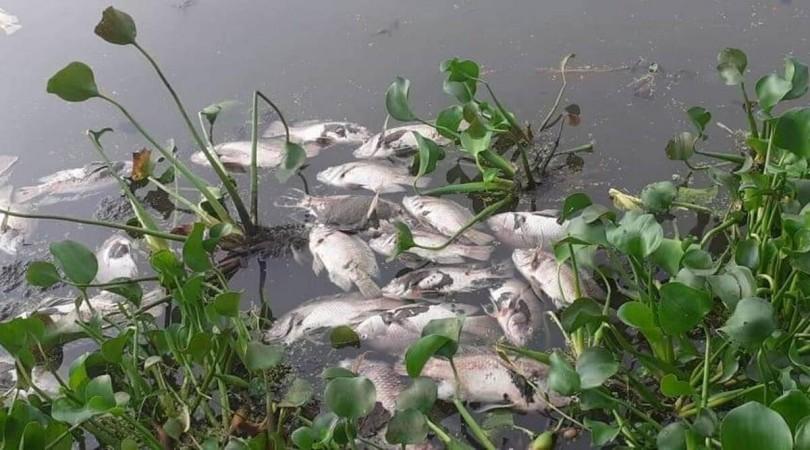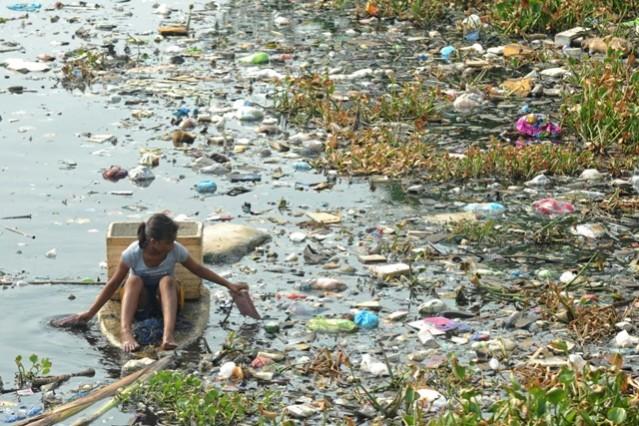The water bodies and the resulting biodiversity have been bearing the brunt of the growing population and unsustainable development for a few decades now. Dead fish, murky waters and the resultant stench are some of the very visible signs of nature having reached a breaking point.
It's been a week since hundreds of dead fish have been floating on Mottanalluru Lake in South Bengaluru. An inflow of chemicals, pesticides, effluents from the surrounding industries and agricultural fields has finally come to a breaking point.

After the reports of dead fish gained traction, some of the local residents alleged that they have been forced to live with the stench of dead fish despite complaining to the concerned officials for the last week.
After the stench became unbearable, several residents and lake activists complained to the local authorities, including the Karnataka State Pollution Control Board. After a team inspected the site, senior officials from KSPCB said the inflow of effluents and pesticides from surrounding industries and agricultural fields resulted in a sudden dip in dissolved oxygen in the lake.
Classic case of unsustainable development
The lake, located 16 kms from Koramangala, sits on the border and does not fall under BBMP limits. Local residents also said that they requested MLA Shivanna too in the matter. Time and again, from foam to dead fish, have all washed up on the shores of the city's lakes.
Last year, Kommaghatta Lake in Kengeri had thousands of dead fish floating on its surface spread over 34 acres. The shocking site resulted in a bureaucratic blame game with several residents complaining of foul smell. The area had to be barricaded and the dead fish cleared out.

Polluted lakes in Bengaluru - a perennial problem
In 2019, thousands of dead fish landed up on the shores of Sheelavantanakere lake at Nallurahali, Whitefield in Bengaluru. At the time, contamination due to sewage inflows resulted in not just polluting the lake, but black water, stench and dead fish. A year before that, again thousands of dead fish were found floating on the surface of Seegehalli Lake in Bengaluru. Many years ago, the fisheries department made several recommendations, including the installation of aerators to increase the Dissolved Oxygen (DO) levels in the lake.
A recent assessment by the Centre for Science and Environment stated that the number of water bodies in Bengaluru had reduced by 79 per cent in the past four decades. Once a report submitted by the Lake Encroachment House Committee, said nearly 144 religious institutions have encroached upon lake beds. The water bodies are threatened not just in numbers, but in terms of the quality of biodiversity too.

















